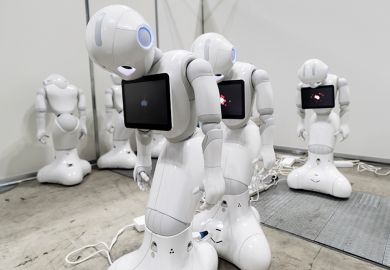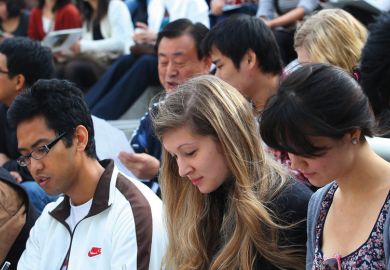Differences in management styles mean that Western academics may struggle to settle in jobs in Chinese universities, research warns.
Shuangmiao Han, a researcher in the College of Education at Zhejiang University, said “abundant grants for scientific research, more job opportunities and cultural curiosity” were driving more Western researchers to take up jobs in Asia, particularly as vacancies become more scarce back home.
However, foreign academics are a “flight risk” if institutions do not consider the impact of differences in management styles, Dr Han said.
For a recent report in Studies in Higher Education, she interviewed international academics at a research institution in China, plus two Chinese joint-venture universities with UK and US partners.
Dr Han found major concerns over the Chinese practice of “routinised improvisation”, which means that staff are expected to be responsive to the whims of their superiors. A “lack of professional protocol” and “ambiguous lines of communication” can lead to a sense of “disengagement” by international faculty, she found.
Last-minute, non-urgent meetings called by Chinese managers were just one example of the communication gap between the two sides.
In China, leaders can “change whenever they want to. And everyone has to follow along. In the US, a leader can only do that once. The next time, people will say ‘no’,” one interviewee said.
“The big challenge is that China really doesn’t have a connection with the culture of what we call faculty governance,” said another interviewee. “In the US, in Europe, the universities are run by faculty, because they are the people who have to carry out the responsibility.”
Once a decision is made by a Chinese department head or dean, “it becomes policy” with “few opportunities for new faculty to directly communicate with them. It is the way culturally things are done here,” one interviewee said.
Different management styles can also affect relations between institutions and can “cause difficulty when coming to systemic and sustainable international cooperation”. While joint ventures are run collaboratively with foreign partners “on paper”, in reality “the Chinese dean keeps the campus running since we are physically here in China”, an interviewee said.
Assessments were another area where management styles clashed. The Chinese system uses citation rankings as its main metric, regardless of whether an academic is working in a high-impact field, whereas the US and UK systems take more account of peer review and the quality of theses.
“In China, everyone seems to think you can make objective measures of this kind of thing. They’re wrong,” one interviewee said, adding that the measure of an academic should be “how much you have changed students’ lives and how much impact you have made in the world”.
These foreign interviewees’ experiences could “provide implications to other countries at a similar HE developmental stage”, Dr Han writes.
“The question remains as to what degree foreign academics and ‘established’ academic practices are able to be integrated into the Chinese and more broadly Asian HE systems,” she concludes.
Register to continue
Why register?
- Registration is free and only takes a moment
- Once registered, you can read 3 articles a month
- Sign up for our newsletter
Subscribe
Or subscribe for unlimited access to:
- Unlimited access to news, views, insights & reviews
- Digital editions
- Digital access to THE’s university and college rankings analysis
Already registered or a current subscriber?








